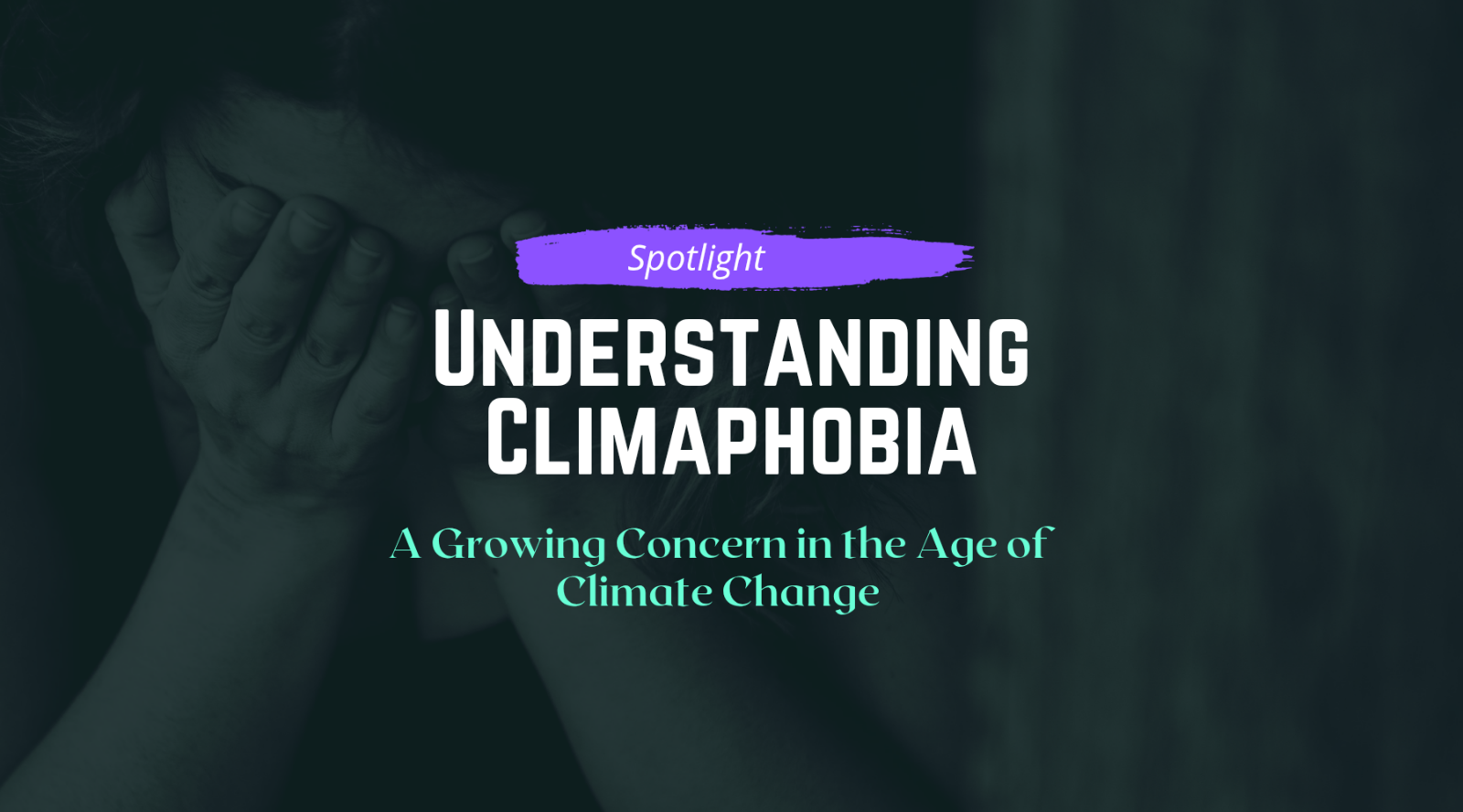(866)223-5699
(866)223-5699

In recent years, conversations about climate change have become more urgent and widespread. While this awareness is crucial, a new phenomenon has emerged: climaphobia. This term refers to the intense fear or anxiety related to climate change and its impacts. While some level of concern is natural and even necessary, climaphobia can lead to paralyzing fear, impacting mental health and daily life. In this blog post, we explore climaphobia, reasons to be concerned about it, and how to identify if you’re affected.
Climaphobia is not yet officially recognized as a psychological disorder, but it describes a growing emotional response to the climate crisis. It manifests as overwhelming fear, helplessness, and even guilt about the state of the planet. This fear can be triggered by constant exposure to alarming news, climate-related disasters, and feelings of personal responsibility.

Mental Health Impacts:
Climaphobia can lead to anxiety, depression, and chronic stress.
Individuals may experience sleeplessness, panic attacks, or a persistent sense of dread.
Paralysis in Action:
Fear of climate change can become so overwhelming that it prevents people from taking meaningful action.
Instead of engaging in solutions, individuals may feel hopeless and disengaged.
Impact on Youth and Future Generations:
Young people, who are often more attuned to environmental issues, are particularly vulnerable to climaphobia.
This fear can affect their education, career choices, and mental well-being.
Strain on Relationships:
Differences in concern about climate change can create tensions in families and social groups.
Climaphobia may lead individuals to withdraw from those who do not share their level of concern.
Economic and Societal Consequences:
Widespread climaphobia could contribute to a sense of collective despair, potentially hindering innovation and progress.
Businesses and governments may struggle to balance urgent action with the need to reassure the public.

If you’re wondering whether climaphobia affects you, consider the following questions:
Do you feel an overwhelming sense of dread or hopelessness when thinking about climate change?
Are you avoiding activities or opportunities due to fear of environmental consequences?
Have you experienced changes in your mental health, such as increased anxiety or depression, related to environmental concerns?
Do you struggle to engage in conversations about the climate crisis without becoming excessively emotional or distressed?
Have you felt guilt or shame about your environmental footprint, to the point of it affecting your daily life?
If you answered “yes” to several of these questions, you may be experiencing climaphobia.
While climaphobia stems from a legitimate concern, it is important to address its impact on mental health. Here are some steps to manage and mitigate climaphobia:
Educate Yourself:
Focus on credible sources that provide a balanced perspective on climate change and solutions.
Understanding the steps being taken globally can instill a sense of hope and agency.
Take Action:
Engaging in environmental initiatives, such as reducing waste or supporting renewable energy, can help counter feelings of helplessness.
Individual and collective action fosters a sense of purpose and empowerment.
Limit Exposure to Alarming Media:
Constant exposure to dire predictions and disasters can exacerbate anxiety.
Balance your information intake with stories of positive change and innovation.
Seek Support:
Talk to friends, family, or mental health professionals about your fears.
Support groups focused on climate anxiety can also provide a sense of community.
Focus on Solutions:
Remember that climate change is a solvable problem.
Shift your perspective from fear to proactive engagement with sustainable practices.

Climaphobia is a growing issue in our climate-conscious world, but it’s essential to address its mental health implications. By understanding the causes and impacts of this fear, individuals can take steps to manage their concerns and focus on positive action. If you suspect you’re experiencing climaphobia, know that you’re not alone—and there are ways to regain a sense of balance and hope in the face of the climate crisis.
Leave a comment